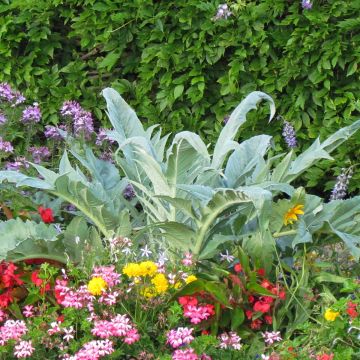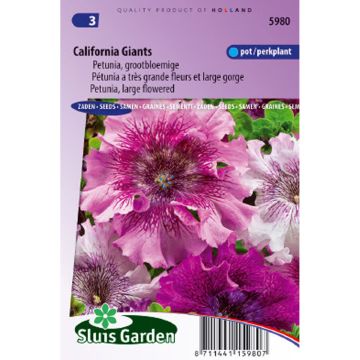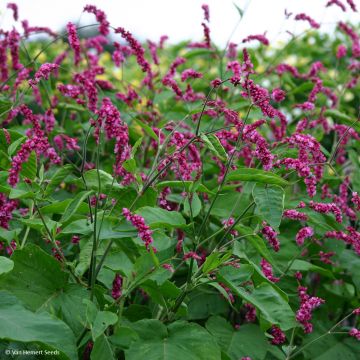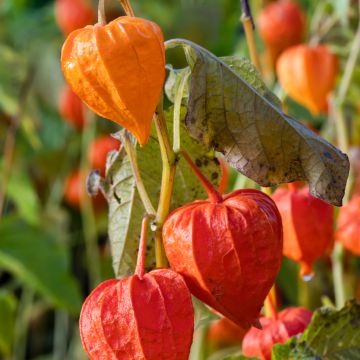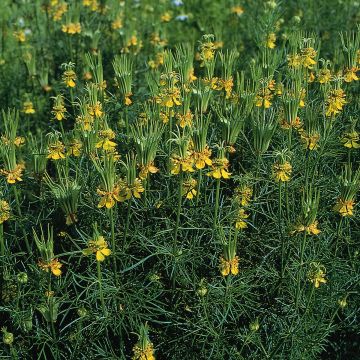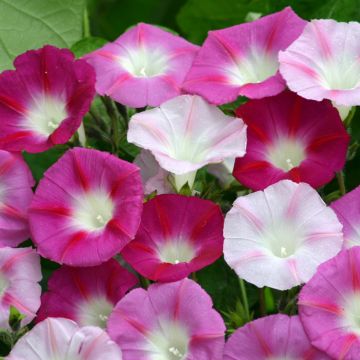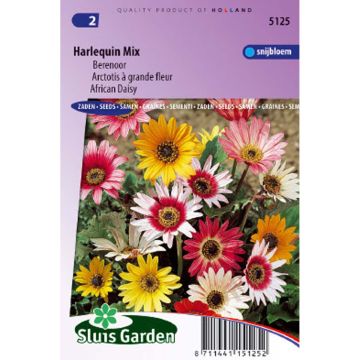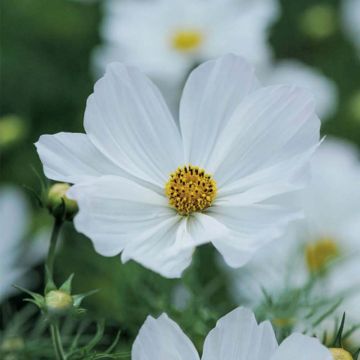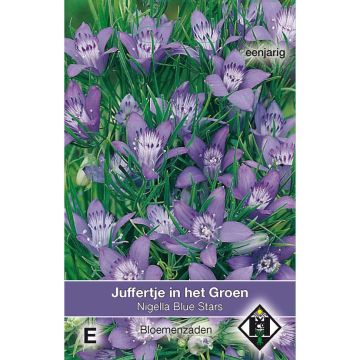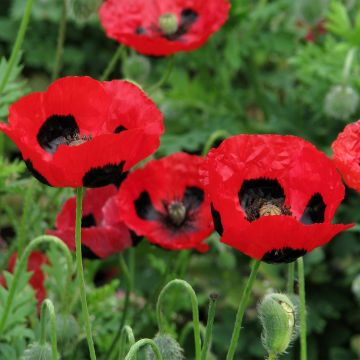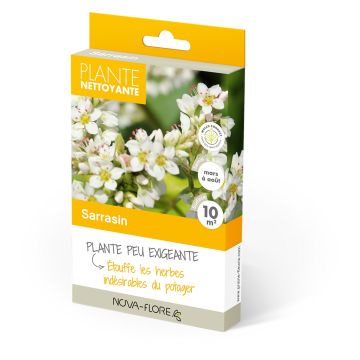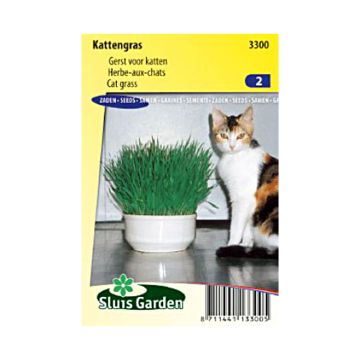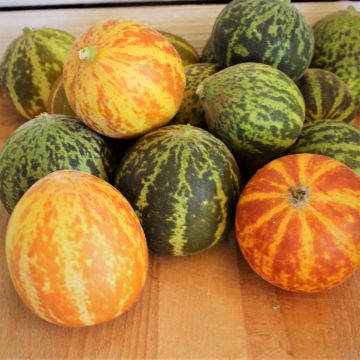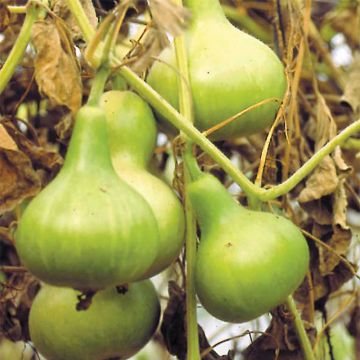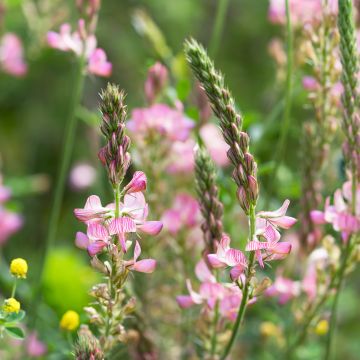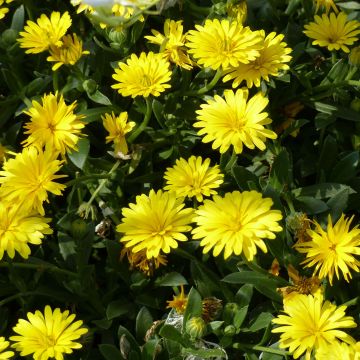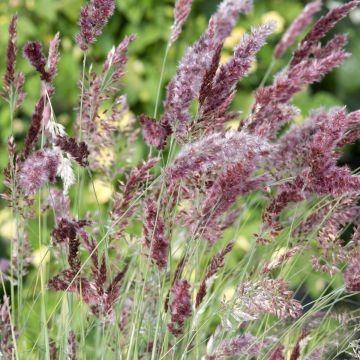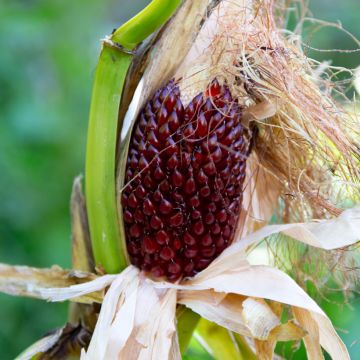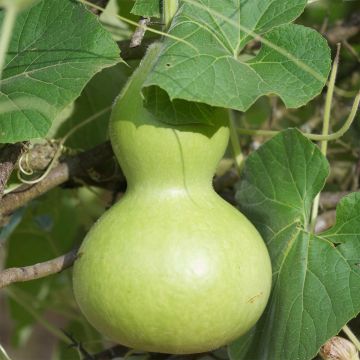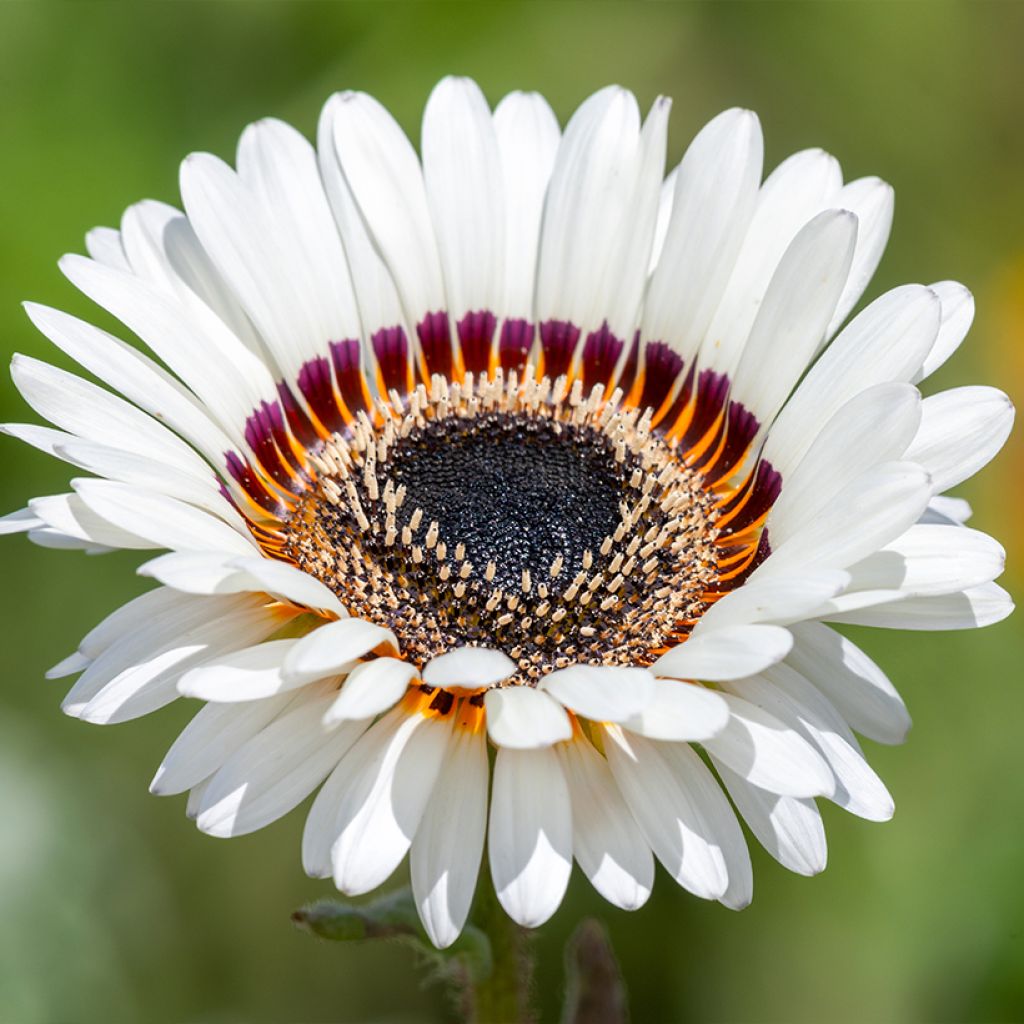

Arctotis Black and White Seeds - African Daisy
Arctotis Black and White Seeds - African Daisy
Venidium fastuosum Black and WHite
African Marigold, Cape Daisy
Beautiful flowers, I can unfortunately only plant them next year as it is already the 11th of June. Nevertheless, I am happy to have ordered them.
Edmond, 11/06/2020
This item cannot be shipped to the selected country
Dispatch by letter from €3.90
More information
Schedule delivery date,
and select date in basket
This plant carries a 6 months recovery warranty
More information
We guarantee the quality of our plants for a full growing cycle, and will replace at our expense any plant that fails to recover under normal climatic and planting conditions.
Seed-only orders are dispatched by sealed envelope. The delivery charge for seed-only orders is €3.90.
Does this plant fit my garden?
Set up your Plantfit profile →
Description
'Black and White' is an astonishing variety of Arcotis fastuosum, commonly known as African Daisy. It produces beautiful white inflorescences with a large contrasting, purple to golden ring around a dark black central disc. Depending on the climate and sowing date, Arctotis has an exceptionally long flowering period, displaying a profusion of brilliant blooms over attractive greyish-green leaves from early summer until the first frosts. This tender perennial is often grown as an annual in colder climates. It is a marvellous choice for borders, rock gardens and sunny window boxes. It thrives in well-drained soil, preferably in full sunshine.
Venedium fastuosum or Actotis fastuosum is a herbaceous perennial plant of the Asteraceae family. It is native to Cape Town, South Africa, hence the common names African Daisy or Cape Daisy. In colder climates, it is grown as an annual as it flowers in its first year. Arctotis is an excellent ground cover plant, a single plant can be enough to cover an entire square metre of soil. 'Black and White' forms a 60-cm-tall clump of hollow, ridged, pubescent stems. The deeply lobed, dark green foliage in borne fairly low down on the stem. It is covered with fine white down which gives the leaves an attractive bluish, silvery sheen; during mild winters, it is semi-evergreen. The flowering period generally begins 10 weeks after sowing, from June-July to September-October. In milder climates, it is possible to sow Arctotis outdoors in the autumn for blooms as early as March-April the following year. The large, 8-10 cm blooms appear over the foliage. They are made up of brilliant white petals with a golden-bronze base, organised around a dark brown to black central disc. They are light-sensitive, meaning that they close at night or during dull, overcast weather. The pollinated blooms give way to seeds which stay viable for 2 or 3 years.
Arctotis 'Black and White' is a tough, undemanding perennial plant that tolerates sea spray and hot, dry summers. It is a valuable plant for seaside gardens and dry gardens and will perform well in all types of soil providing it's not waterlogged. Combine it with Gerberas, Felicia and Dyer’s Chamomile in rock gardens or up dry slopes, or use it to add an exotic touch to mixed borders. For lush blooms, make sure to provide it with plenty of sun. African Daisies also grow well in pots and make excellent cut flowers.
Report an error about the product description
Arctotis Black and White Seeds - African Daisy in pictures
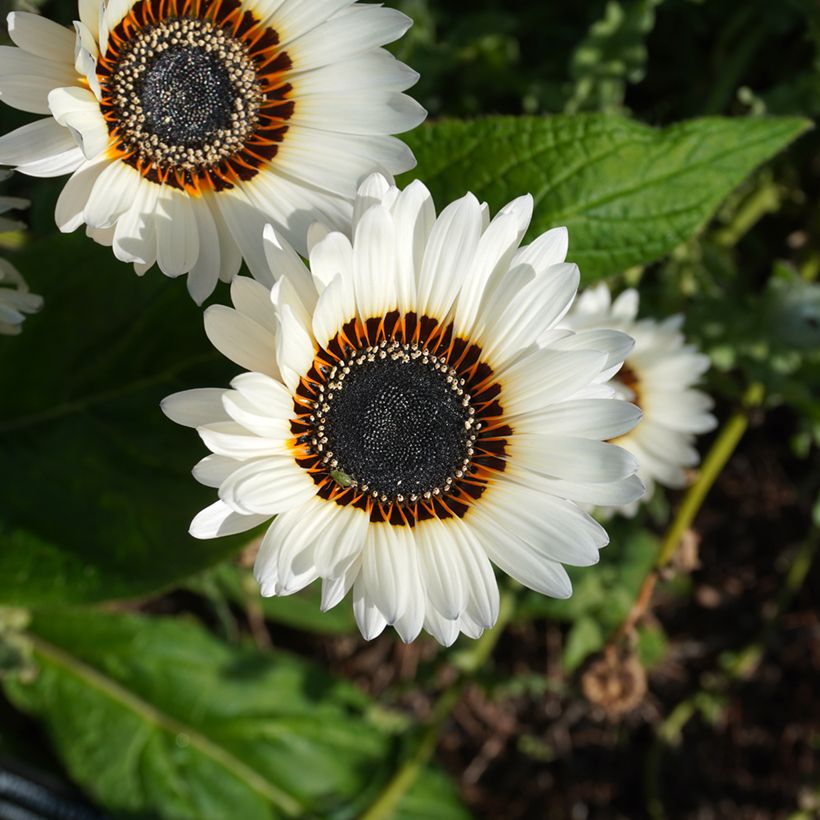

Flowering
Foliage
Plant habit
Botanical data
Venidium
fastuosum
Black and WHite
Asteraceae
African Marigold, Cape Daisy
South Africa
Other Flower seeds A to Z
Planting and care
Sow indoors as early as February, under a cold frame in April-May or direct sow outdoors the previous autumn in warmer climates. Lightly cover the seeds and keep the soil moist but not soggy. Germination generally takes 14 to 21 days at 15-18°C. When they are strong enough to be handled and the soil has warmed up (usually May-June), plant them out in their final location, leaving 30 cm between each plant. Young Arctotis plants can be subject to attacks by blackfly, slugs and snails.
Sowing period
Intended location
-
, onOrder confirmed
Reply from on Promesse de fleurs
Flower seeds
Haven't found what you were looking for?
Hardiness is the lowest winter temperature a plant can endure without suffering serious damage or even dying. However, hardiness is affected by location (a sheltered area, such as a patio), protection (winter cover) and soil type (hardiness is improved by well-drained soil).

Photo Sharing Terms & Conditions
In order to encourage gardeners to interact and share their experiences, Promesse de fleurs offers various media enabling content to be uploaded onto its Site - in particular via the ‘Photo sharing’ module.
The User agrees to refrain from:
- Posting any content that is illegal, prejudicial, insulting, racist, inciteful to hatred, revisionist, contrary to public decency, that infringes on privacy or on the privacy rights of third parties, in particular the publicity rights of persons and goods, intellectual property rights, or the right to privacy.
- Submitting content on behalf of a third party;
- Impersonate the identity of a third party and/or publish any personal information about a third party;
In general, the User undertakes to refrain from any unethical behaviour.
All Content (in particular text, comments, files, images, photos, videos, creative works, etc.), which may be subject to property or intellectual property rights, image or other private rights, shall remain the property of the User, subject to the limited rights granted by the terms of the licence granted by Promesse de fleurs as stated below. Users are at liberty to publish or not to publish such Content on the Site, notably via the ‘Photo Sharing’ facility, and accept that this Content shall be made public and freely accessible, notably on the Internet.
Users further acknowledge, undertake to have ,and guarantee that they hold all necessary rights and permissions to publish such material on the Site, in particular with regard to the legislation in force pertaining to any privacy, property, intellectual property, image, or contractual rights, or rights of any other nature. By publishing such Content on the Site, Users acknowledge accepting full liability as publishers of the Content within the meaning of the law, and grant Promesse de fleurs, free of charge, an inclusive, worldwide licence for the said Content for the entire duration of its publication, including all reproduction, representation, up/downloading, displaying, performing, transmission, and storage rights.
Users also grant permission for their name to be linked to the Content and accept that this link may not always be made available.
By engaging in posting material, Users consent to their Content becoming automatically accessible on the Internet, in particular on other sites and/or blogs and/or web pages of the Promesse de fleurs site, including in particular social pages and the Promesse de fleurs catalogue.
Users may secure the removal of entrusted content free of charge by issuing a simple request via our contact form.
The flowering period indicated on our website applies to countries and regions located in USDA zone 8 (France, the United Kingdom, Ireland, the Netherlands, etc.)
It will vary according to where you live:
- In zones 9 to 10 (Italy, Spain, Greece, etc.), flowering will occur about 2 to 4 weeks earlier.
- In zones 6 to 7 (Germany, Poland, Slovenia, and lower mountainous regions), flowering will be delayed by 2 to 3 weeks.
- In zone 5 (Central Europe, Scandinavia), blooming will be delayed by 3 to 5 weeks.
In temperate climates, pruning of spring-flowering shrubs (forsythia, spireas, etc.) should be done just after flowering.
Pruning of summer-flowering shrubs (Indian Lilac, Perovskia, etc.) can be done in winter or spring.
In cold regions as well as with frost-sensitive plants, avoid pruning too early when severe frosts may still occur.
The planting period indicated on our website applies to countries and regions located in USDA zone 8 (France, United Kingdom, Ireland, Netherlands).
It will vary according to where you live:
- In Mediterranean zones (Marseille, Madrid, Milan, etc.), autumn and winter are the best planting periods.
- In continental zones (Strasbourg, Munich, Vienna, etc.), delay planting by 2 to 3 weeks in spring and bring it forward by 2 to 4 weeks in autumn.
- In mountainous regions (the Alps, Pyrenees, Carpathians, etc.), it is best to plant in late spring (May-June) or late summer (August-September).
The harvesting period indicated on our website applies to countries and regions in USDA zone 8 (France, England, Ireland, the Netherlands).
In colder areas (Scandinavia, Poland, Austria...) fruit and vegetable harvests are likely to be delayed by 3-4 weeks.
In warmer areas (Italy, Spain, Greece, etc.), harvesting will probably take place earlier, depending on weather conditions.
The sowing periods indicated on our website apply to countries and regions within USDA Zone 8 (France, UK, Ireland, Netherlands).
In colder areas (Scandinavia, Poland, Austria...), delay any outdoor sowing by 3-4 weeks, or sow under glass.
In warmer climes (Italy, Spain, Greece, etc.), bring outdoor sowing forward by a few weeks.

































